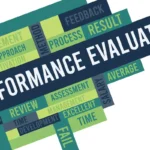Mindset Growth : Key Principles for Personal Development
Personal development is a journey that each embarks upon, shaped significantly by their mindset. Adopting a growth mindset is essential for unlocking your potential and enhancing your overall well-being. This mindset encourages an attitude where challenges are viewed as opportunities for growth rather than obstacles. Here are fundamental principles that can help you cultivate mindset growth and foster personal development.
Understand the Power of Your Mindset
Your mindset determines how you perceive and react to life’s challenges. A growth mindset promotes resilience, adaptability, and learning. Embracing this perspective enables you to see failures as stepping stones toward success. A simple way to foster this in your life is by regularly reminding yourself:
- Challenges are opportunities.
- Effort leads to improvement.
- Learning never stops.
Set Clear and Achievable Goals
Goals act as compasses that guide your personal development journey. Setting SMART goals—Specific, Measurable, Achievable, Relevant, and Time-bound—helps maintain focus and motivation. Here’s how you can frame your goals effectively:
- Specific: Define exactly what you want to achieve.
- Measurable: Ensure you can track your progress.
- Achievable: Set realistic goals based on your current abilities.
- Relevant: Align your goals with your values and long-term objectives.
- Time-bound: Establish a timeline for completion.
Embrace Lifelong Learning
To foster mindset growth, it’s vital to cultivate a habit of lifelong learning. This doesn’t just include formal education but also informal learning experiences. Engaging with books, podcasts, workshops, or even conversations with diverse individuals can broaden your horizons. Remember, every bit of knowledge contributes to your growth.
Accept Failure as Part of the Process
Failure often carries a negative connotation; however, it is an integral component of learning and personal development. By reframing how you view failure, you can transform it into a valuable teacher. When you encounter setbacks, ask yourself:
- What can I learn from this experience?
- How can I apply these lessons in the future?
This mindset shift from fear to curiosity allows you to approach challenges with confidence and resilience.
Surround Yourself with Positive Influences
The people you interact with significantly impact your mindset. Surrounding yourself with positive, growth-oriented individuals can inspire and motivate you. Seek out mentors, join supportive communities, or engage with friends who encourage you to step outside your comfort zone. Their positive energy can be contagious, prompting you to push your limits.
Practice Self-Reflection
Regular self-reflection allows you to evaluate your progress and understand your emotional and mental states. Dedicating time for introspection can help clarify your values and goals, as well as the steps needed to achieve them. Consider journaling as a way to document your thoughts and experiences. Here are some reflective questions to guide you:
- What did I learn today?
- How did I overcome challenges?
- What am I grateful for?
Commit to Consistency
Consistency is vital in fostering a growth-oriented mindset. Small, daily actions form the foundation for significant changes over time. Whether it’s dedicating a few minutes to reading, practising a skill, or reflecting on your day, these consistent efforts can compound into remarkable growth. Think of it as planting seeds; the more you nurture them, the stronger they grow.
Take Care of Your Physical Well-being
Your physical health is integral to your mental wellness. Regular exercise, a balanced diet, and sufficient sleep contribute to a positive mindset and enhance your capacity for growth. When you feel good physically, you’re more resilient and engaged, ready to tackle personal development challenges head-on.
By integrating these principles into your life, you can cultivate a powerful mindset focused on growth. Remember, personal development is a continuous journey, and your mindset plays a crucial role in shaping your path. Embrace the process, learn from experiences, and celebrate your progress along the way.
Overcoming Limiting Beliefs to Foster a Growth Mindset
Many individuals struggle with limiting beliefs that hinder their potential and keep them trapped in a fixed mindset. These beliefs often manifest as negative thoughts or self-doubt, creating barriers to personal growth and development. Fortunately, the path to overcoming these beliefs starts with cultivating a growth mindset. This perspective allows you to embrace challenges, learn from criticism, and persist in the face of setbacks. Below are some strategies for breaking through those limiting beliefs and fostering a growth mindset.
Recognize Your Limiting Beliefs
The first step in overcoming limiting beliefs is recognizing them. Many people are unaware of the negative thoughts that crowd their minds and influence their actions. Start by paying attention to your inner dialogue. Ask yourself:
- What do I frequently tell myself about my abilities?
- Are my thoughts rooted in facts or assumptions?
- Do I focus more on my failures than my successes?
By identifying these patterns, you can begin to challenge and change them.
Challenge Negative Thoughts
Once you’ve identified your limiting beliefs, it’s vital to challenge them. Replace these negative thoughts with positive, empowering affirmations. For example, instead of saying, “I’m terrible at public speaking,” try reframing it as “I’m improving my public speaking skills with practice.” This technique can help you reconstruct your perception of your capabilities, encouraging a mindset that celebrates growth rather than defeat.
Embrace Failure as Part of Growth
In a society that often equates success with worth, many people develop a fear of failure. However, embracing failure as a learning opportunity is crucial for personal development. When you view setbacks as stepping stones to improvement, you’ll find the courage to take risks. Reflecting on your experiences allows you to extract lessons that fuel your journey toward success:
- Analyze what went wrong and why.
- Identify what you can do differently next time.
- Celebrate the effort rather than just the outcome.
This mindset encourages resilience, making it easier to overcome future challenges.
Surround Yourself with Positive Influences
Your environment significantly impacts your mindset. Surrounding yourself with supportive individuals who encourage growth can greatly influence your belief system. Engage with people who inspire you, share goals, and are equally invested in personal development. Positive relationships act as a buffer against negativity, fostering a sense of belonging and empowerment.
Adopt a Lifelong Learning Attitude
Developing a growth mindset necessitates an embrace of lifelong learning. When you consciously seek opportunities to learn—be it through formal education, reading, or hands-on experiences—you reinforce the belief that growth is always possible. Here are some ways to foster this attitude:
- Set personal goals that challenge your current abilities.
- Seek feedback from trusted sources to identify areas for improvement.
- Remain curious and open to new experiences.
This approach energizes and inspires you to pursue growth continually.
Practice Self-Compassion
For many, the journey toward a growth mindset can be filled with challenges and setbacks. Practicing self-compassion is essential during these times. When faced with difficulties, treat yourself with kindness rather than judgment. Recognize that no one is perfect, and everyone encounters challenges:
- Speak to yourself as you would to a good friend.
- Acknowledge your feelings without harsh self-criticism.
- Remind yourself that setbacks are part of the growth process.
Self-compassion fosters resilience, allowing you to bounce back more robustly and more determined.
Visualize Your Success
Visualization can be a powerful tool in overcoming limiting beliefs. Spend time picturing your goals and the steps necessary to achieve them. Envision yourself successfully navigating challenges and celebrating progress. This practice not only boosts your confidence but also strengthens your belief in your abilities.
Overcoming limiting beliefs to foster a growth mindset is an empowering journey that involves self-awareness, resilience, and a commitment to change. By recognizing your negative thoughts, challenging them, embracing failure, surrounding yourself with positivity, fostering a learning attitude, practising self-compassion, and visualizing success, you can break free from the constraints of a fixed mindset. Remember, growth is a continuous process, and every step you take leads you closer to your fullest potential.
Daily Habits That Cultivate a Positive Mindset
A positive mindset is essential for personal development and overall well-being. It acts as the foundation for resilience, motivation, and success. By cultivating daily habits that foster this mindset, you can transform your life and elevate your perspective, enabling you to see opportunities rather than obstacles. Here are effective daily habits to help you nurture a positive mindset:
Practice Gratitude Every Morning
Start your day with gratitude. Acknowledge the things you are thankful for—no matter how small. By listing three things you appreciate each morning, you train your brain to focus on the positive rather than dwelling on the negative. Consider keeping a gratitude journal where you can jot down these thoughts. This simple exercise can set a positive tone for your entire day.
Engage in Mindfulness Meditation
Mindfulness meditation is an excellent habit to integrate into your daily routine. Spending just five to ten minutes in meditation helps you become more aware of your thoughts and feelings. Sit in a quiet space, close your eyes, and concentrate on your breathing. Acknowledge any distracting thoughts and gently bring your focus back to your breath. Practising this regularly can reduce stress and promote a more positive outlook.
Limit Negative Influences
The people and environments you engage with daily significantly affect your mindset. Aim to surround yourself with positive influences—friends who uplift you, motivational podcasts, or inspiring literature. Limit exposure to negativity, whether it’s through social media, news, or unsupportive individuals. Protecting your mental space is essential for cultivating a positive mindset.
Incorporate Physical Activity
Regular physical activity is beneficial for your body and enhances your mental well-being. Exercise releases endorphins, commonly known as the “feel-good” hormones. Aim for at least 30 minutes of moderate exercise several times a week. This could be anything from jogging to yoga or dancing—whatever you enjoy. Remember, staying active boosts both your mood and your mindset.
Establish a Daily Affirmation Routine
Affirmations reinforce a positive self-image. Create a set of personalized affirmations that resonate with you, such as “I am capable of achieving my dreams” or “I embrace challenges with confidence.” Reciting these affirmations daily—preferably in front of a mirror—can help shift your mindset toward positivity and self-empowerment.
Limit Screen Time Before Bed
How you wind down each day impacts your mindset the next morning. Cutting down on screen time before bed can significantly improve sleep quality. Instead of scrolling through social media or watching TV, opt for reading a book, journaling, or engaging in a calming hobby. A good night’s sleep, free from the distractions of technology, allows your mind to reset and refresh.
Seek Continuous Learning
Embracing a growth mindset is critical to fostering positivity. Set aside time each day to learn something new—whether that means reading articles, taking online courses, or listening to educational podcasts. Challenging yourself stimulates your brain and keeps you engaged, promoting enthusiasm for your life and its possibilities.
Connect with Nature Regularly
Spending time in nature can immensely impact your mindset. Aim to connect with nature a few times a week—host a weekend hike, take a walk in the park, or enjoy your backyard. Fresh air and natural surroundings can lift your spirits and provide a refreshing change of scenery, which is vital for maintaining a positive outlook.
Volunteer and Help Others
Giving back can immensely enrich your mindset. Consider dedicating time regularly to volunteer at local charities or helping a friend in need. These acts of kindness can foster a sense of gratitude and community, showing you the positive impact you can have on others. Remember, helping others often boosts your feelings of happiness and fulfilment.
Reflect on Your Day
At the end of each day, take a moment to reflect on your experiences. What went well? What could you improve? Journaling your thoughts or discussing them with a friend allows for personal growth and reinforces a positive mindset. This reflection helps you identify patterns in your thoughts and behaviours that you can further cultivate for growth.
Implementing these habits into your daily life can significantly enhance your overall mindset. With consistent practice, you’ll begin to notice a shift toward a more positive outlook that supports your personal development journey. Remember, creating a positive mindset is a continuous process that flourishes with commitment and dedication.
The Role of Resilience in Personal Growth
Resilience plays a pivotal role in the journey of personal development. It acts as a cornerstone for growth, allowing individuals to face challenges head-on and emerge stronger. Understanding and nurturing resilience can lead to remarkable personal transformation, as it influences how we respond to adversity and setbacks.
Resilience is not merely about bouncing back; it’s about thriving despite difficulties. It involves a mindset that embraces challenges and views failures as opportunities for learning and growth. This mindset shift can significantly enhance our personal development efforts.
Understanding Resilience
At its core, resilience is the capacity to recover quickly from difficulties. It’s a skill that can be cultivated over time through various practices and techniques:
- Emotional Awareness: Recognizing and understanding your emotions is the first step toward resilience. When you become aware of how you feel, you can manage your reactions more effectively.
- Positive Thinking: Maintaining a positive outlook can help you navigate challenging times. Adopt an attitude of optimism, even in the face of adversity.
- Adaptability: Being flexible in your thoughts and actions allows you to adjust to new circumstances. When things don’t go as planned, adaptable individuals can handle changes more gracefully.
- Support Network: Building and relying on a solid support system can bolster your resilience. Surround yourself with people who uplift and encourage you.
The Benefits of Building Resilience
Developing resilience comes with numerous benefits that enhance personal growth:
- Improved Problem-Solving Skills: Resilient individuals tend to be better at problem-solving. They approach challenges with a solution-oriented mindset, making it easier to navigate obstacles.
- Increased Confidence: Each time you overcome a challenge, your confidence grows. This self-assuredness can propel you toward future endeavours.
- Enhanced Emotional Regulation: With resilience, you learn to manage your emotions more effectively. This can result in reduced stress and anxiety, contributing to overall well-being.
- More remarkable Persistence: Resilient people are less likely to give up. Their tenacity enables them to pursue their goals despite setbacks.
Practical Strategies to Foster Resilience
Building resilience is a personal journey. Here are some actionable strategies to help you nurture this essential trait:
- Set Realistic Goals: Break down larger goals into smaller, achievable steps. This makes challenges seem less daunting and allows for incremental progress.
- Practice Self-Care: Prioritize your physical and mental well-being. Regular exercise, a balanced diet, and adequate sleep can significantly impact your resilience.
- Embrace Continuous Learning: View every setback as a learning experience. Reflect on what went wrong and how you can improve for the future.
- Seek Help When Needed: Don’t hesitate to ask for support. Whether it’s from friends, family, or professionals, seeking guidance can provide clarity during tough times.
Mindset Shift for Resilience
To truly harness resilience, adopting a growth mindset is crucial. This perspective promotes the belief that abilities and intelligence can be developed through dedication and hard work. Here are some ways to incorporate a growth mindset into your life:
- Embrace Challenges: Instead of avoiding obstacles, take them on as opportunities for growth.
- Value Effort: Recognize that effort is critical to mastering skills and gaining knowledge.
- Learn from Criticism: View feedback as constructive rather than as a personal attack. Use it to improve.
- Find Inspiration in Others: Observe how others overcome hardships. Allow their stories to inspire your resilience journey.
Resilience is indispensable for those striving for personal development. By understanding its significance, recognizing its benefits, and applying practical strategies, individuals can significantly enhance their capacity for growth. Cultivating resilience not only equips you to face the inevitable challenges of life but also empowers you to thrive and flourish as you work towards your goals.
Leveraging Feedback for Continuous Improvement and Growth
Continuous improvement and personal growth are essential for both professional and personal success. One of the most effective ways to achieve this is by leveraging feedback. Feedback isn’t just a tool; it’s a powerful catalyst for growth. Embracing feedback can transform how you view your abilities, leading to a mindset that thrives on improvement.
When you effectively incorporate feedback into your routine, you open doors to numerous benefits that can propel your development forward. Here are some strategies to help you utilize feedback for continued personal growth:
- Seek Out Constructive Criticism: Don’t wait for feedback to come to you. Actively seek it! Ask colleagues, friends, or mentors for their perspectives on your work or behaviour. Their insights often provide a fresh viewpoint, helping you identify areas for improvement.
- Listen Actively: When receiving feedback, focus on understanding the message. Listen without interrupting. This demonstrates respect and a willingness to learn. It can also lead to deeper, more meaningful conversations about your growth.
- Embrace a Growth Mindset: Adopt a mindset that views challenges as opportunities. People with a growth mindset learn from feedback rather than feeling insulted or defensive. If you see feedback as a stepping stone rather than a setback, you’ll be more inclined to act on it positively.
- Reflect on Feedback Received: Set aside time to process the feedback you receive. Consider what resonates with you and what you might want to improve. Reflecting allows you to take ownership of your development and strategize effectively.
- Implement Changes: After reflecting, take action. Create a plan to implement the suggestions. Whether it involves acquiring new skills or improving current ones, action brings feedback to life.
- Follow-Up: After making changes, revisit the individuals who provided feedback to show your progress. This not only helps you gauge your improvements but also fosters stronger connections with those offering support.
Feedback isn’t just about receiving input; it’s about cultivating an environment where improvement is prioritized. To enhance this environment, consider the following:
- Be Open to Diverse Perspectives: Feedback from different sources offers a holistic view of your performance. Embrace viewpoints not only from trusted colleagues but also from those outside your immediate circle.
- Encourage a Feedback Culture: Foster an atmosphere where feedback is encouraged and valued. When people feel comfortable sharing their thoughts, the quality and relevance of feedback significantly improve.
- Express Gratitude: Appreciate the time and effort others take to provide feedback. A simple “thank you” goes a long way in creating a positive feedback loop.
Moreover, learning how to give constructive feedback can significantly enhance your growth journey. Effective feedback can illuminate the path for others while cementing your understanding of personal strengths and weaknesses. Here are strategies for providing impactful feedback:
- Be Specific: Vague feedback can be counterproductive. Instead of saying, “You did well,” specify what exactly was influential in their approach.
- Focus on the Task, Not the Person: Frame your feedback in a way that evaluates the task rather than the individual. This helps maintain the recipient’s confidence and motivates improvement without causing defensiveness.
- Use the ‘Sandwich’ Method: Start with a positive comment, then discuss areas for improvement, and finish with encouragement. This approach softens the blow of critical feedback and fosters a positive atmosphere.
The impact of feedback on personal growth is extensive and multifaceted. By actively engaging with feedback, reflecting on it, and implementing changes, you not only fulfil your potential but also inspire those around you. You create a ripple effect of growth that extends beyond your journey, encouraging others to embrace feedback as a tool for continuous improvement.
Ultimately, your approach to feedback and personal development determines how quickly and effectively you advance. By prioritizing feedback in your growth strategy, you lay a strong foundation for lifelong learning and success.
Conclusion
Embracing mindset growth is a journey that influences every aspect of your personal development. As we’ve explored, the fundamental principles of this transformative approach lay the groundwork for a life characterized by resilience, positivity, and continuous improvement. Each principle serves as a stepping stone towards unlocking your potential, and the harmony between them creates a solid foundation upon which you can build your aspirations.
Navigating through life, it’s essential to confront and overcome limiting beliefs—those invisible barriers that hinder our progress. Recognizing these thoughts is the first step toward dismantling them. With a commitment to challenge negative self-talk, you can foster a growth mindset that welcomes possibilities rather than fears. When you shift your perspective from one of scarcity to one of growth, you become open to new experiences and opportunities. Additionally, it’s vital to replace the “I can’t” narrative with “How can I?” This simple yet powerful question can propel you towards actions that align with your bigger goals.
Daily habits are pivotal in nurturing a positive mindset. Simple routines such as practising gratitude and engaging in mindfulness exercises can significantly affect your emotional landscape. When you start each day by recognizing what you’re thankful for, you anchor yourself in positivity. Likewise, setting aside time for reflection and mindfulness helps clear mental clutter, allowing you to focus on what truly matters. Even small gestures, like journaling or engaging in physical activity, contribute to an overall enhanced mindset. Consider these habits as daily rituals that fortify your mental state, making it easier to glide through challenges with a light heart.
Resilience is another essential component of personal growth. Life will inevitably present obstacles, and how you respond to them defines your path moving forward. Resilience enables you to bounce back from setbacks, learning valuable lessons along the way. Instead of viewing disappointments as failures, embrace them as opportunities for growth—an integral part of your learning journey. This mindset not only prepares you to face future challenges but also enriches your understanding of your strengths and weaknesses. Building resilience is akin to strengthening a muscle; the more you exercise it through experiences, the more adept you become at handling whatever comes your way.
Feedback plays a critical role in your growth journey. Leveraging feedback allows you to gain unique insights from those around you, fostering continuous improvement in both personal and professional contexts. Regardless of whether the feedback is constructive or positive, each piece of information you receive is an opportunity to refine your approach and expand your skill set. Embracing feedback requires humility and a willingness to embrace change—a vital trait of a growth-oriented individual. By soliciting feedback and actively using it, you cultivate an environment where growth is not only possible but encouraged.
To tie all these elements together, realise that developing a growth mindset is a personal expedition that demands dedication and an ongoing commitment to improvement. There’s an inherent beauty in this journey, as each step you take towards fostering a strategic mindset also leads to evolving your character and capabilities. The principles of mindset growth challenge you to embrace change, overcome your internal barriers, create positive habits, build resilience, and embrace the value of feedback.
This holistic approach to personal development empowers you to lead a fulfilling life where your potential knows no bounds. As you implement these principles into your daily routine, remember that personal development isn’t a destination; it’s a lifelong journey of transformation. Your mindset shapes your reality, influencing how you respond to the world around you. As you cultivate a growth mindset, you not only enhance your individual experience but also inspire those around you to embark on their journeys of personal growth.
In essence, recognise that every challenge carries an opportunity for self-discovery and improvement. With the right mindset, you can harness the power within to transform limitations into learning experiences, leading you to a more meaningful and abundant life. Keep pushing your boundaries, remain open to growth, and watch as you unlock doors to possibilities you once thought unreachable. The journey of personal development is uniquely yours—embrace it with passion, dedication, and an unwavering belief in your capacity to grow.










